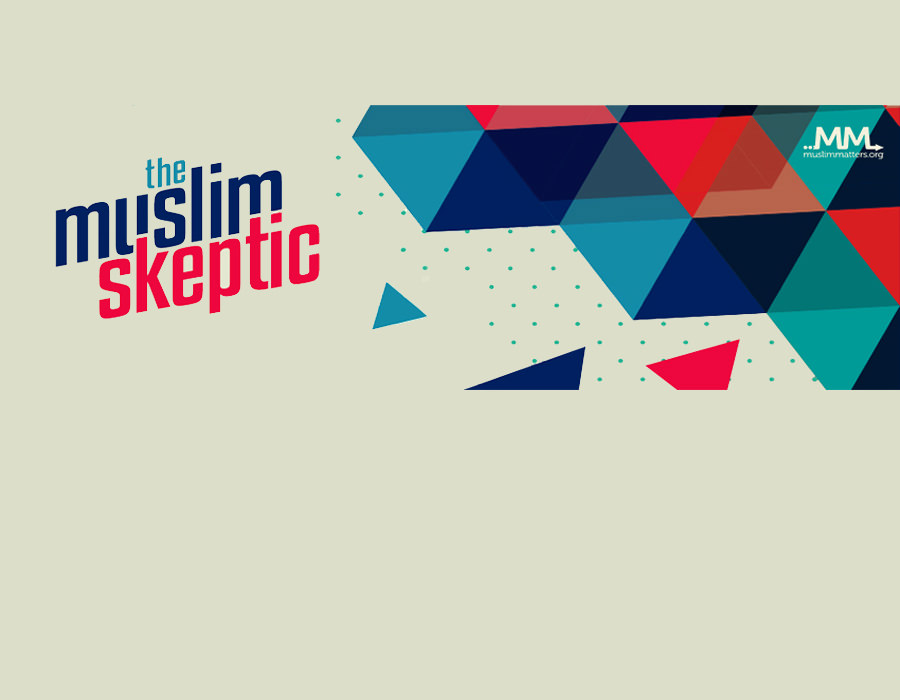Why are so many of our youth experiencing Islam as an unbearable hardship?
Why are so many of our youth experiencing promiscuity, drinking, and drugs as liberation?
The recent “Practicing Islam in Short Shorts” is yet another entry in a long line of literature that characterizes traditional Islam as “inflexible and fossilized” and departure from traditional Islam as liberating and rational.
Keep supporting MuslimMatters for the sake of Allah
Alhamdulillah, we're at over 850 supporters. Help us get to 900 supporters this month. All it takes is a small gift from a reader like you to keep us going, for just $2 / month.
The Prophet (SAW) has taught us the best of deeds are those that done consistently, even if they are small.
Click here to support MuslimMatters with a monthly donation of $2 per month. Set it and collect blessings from Allah (swt) for the khayr you're supporting without thinking about it.
The responses to the “Short Shorts” confession have also been typical. On one side, commentators cheer the “brave” voice daring to “transcend hollow religiosity” and throw off the “chains of organized religion.” On the other side, the response has focused on defending orthodoxy, essentially conceding that Islam is inflexible and monolithic, but abiding by that restrictiveness is worth it in the end.
What both approaches have in common is that they assume that the burden is on Islam — and traditional religion at large — to satisfactorily defend itself against the litany of accusations made against it. As for Islam, it is guilty until proven innocent, and “practicing” “traditional” Muslims have been only too eager play the role of public defender.
In contrast to this, my question is: Why should the “other side” — promiscuity, drinking, drugs, “sexy” clothes, and all the activities, choices, and values that Muslims opt for when flouting Islamic ethics — get a free pass? Why shouldn’t the burden be on these things to prove themselves to the rational mind as a clear alternative? Is life according to the standards of the Western monoculture really as liberating and autonomous as we are made to believe, or is there an unnoticed rigidity and discipline inherent to that system much akin to the most draconian religious traditions?
I address these questions and more in this brief video:
[youtube]https://www.youtube.com/watch?v=kwf5bwCCf2I[/youtube]























Mohammed Khan
April 7, 2015 at 7:51 AM
I just love this article and video. Just right on the dot and extremely useful for our teenagers in particular.
While watching your video, I was thinking of Hasan Gai Eaton and his short lectures on BBC radio. These lectures have been transcribed and now available on ‘Living Islam’ website. In particular, I remembered reading one particular transcribed lecture from Hasan Gai Eaton “What Is Normal And What Normality?” The link is
http://www.livingislam.org/norm_e.html#nor
Regards, -Mohammed Khan
Arif
April 11, 2015 at 4:37 PM
Excellent article !
Mahad
April 12, 2015 at 5:36 PM
MashaAllah, I absolutely love your cultural insight. I thought I was alone in this regard. Every society/culture has its own moral compass and conditions people into thinking certain things are good and bad. Islam has this too, with Islam being from Allah, and thus being the truth and not arbitrary. But unless you have the strength to overcome your cultural conditioning with the Islamic perspective; you will find it difficult to understand many aspects of the religion. The short shorts example is just another classic example of assimilation, and the cultural identity swallowing the religious identity. The only catch being that when we die; the Angels will not ask us if we were British, Latino, American, or Arab – but will start with “Who is your Lord?” and so on. I can’t say for sure, but the assimilators seem like they would have a tough time answering that question.
Tom the Taalib
April 23, 2015 at 2:04 AM
Well done! Thanks for this, I appreciate especially your delving into the illusion of choice in liberal society and your complication of compulsion as something enforced through a huge variety of means.